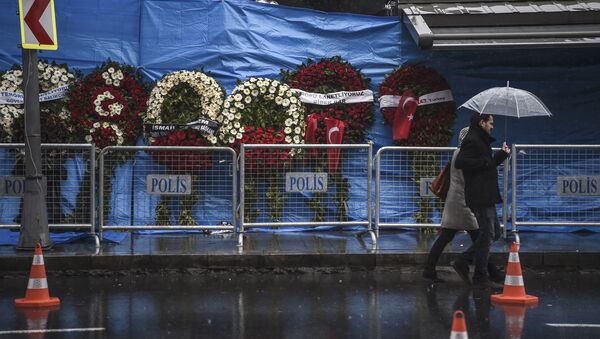"The security measures will be at the highest level on New Year's Eve… In order to make citizens feel safe, no public celebrations will take place. Mass gatherings will be banned. Such measures will be taken near Istiklal Street, Taksim Square and other central districts of the city," Kilic was quoted as saying by DHA news agency.
#TURKEY | #Turkish_Police ban the gatherings in #Taksim_Square in #Istanbul on New Year's Evehttps://t.co/1n8VgvWVf3
— Alghadeer English (@alghadeertv_eng) 20 декабря 2017 г.
Follow us on #Telegram: https://t.co/Y7LOtsjG2J#Ankara#ISIS#PKK#EU#Alghadeertv pic.twitter.com/jclUvgD9s6
Turkey has been under a state of emergency since July 21, 2016 after a failed attempted coup that resulted in deaths of over 240 people and left nearly 2,200 others wounded; it has been extended for three-month periods ever since. Ankara accuses the Gulen movement of masterminding the failed coup attempt, and has arrested thousands of military personnel, activists, officials, journalists, legal and educational workers over suspected links to the group. Gulen himself, who has been residing in the United States since 1999, has refuted all the allegations on numerous occasions.
Over the past few years, Turkey has been hit by a series of deadly terrorist attacks committed by Daesh (banned in Russia) and Kurdistan Workers' Party (PKK). The country's security forces have made attempts to prevent attacks by carrying out massive anti-terror operations across the country.
On January 1, 2017, at least 39 people, including over 20 foreigners, were shot dead by a gunman at an Istanbul nightclub Reina. Almost 70 clubgoers were injured as a result of the attack claimed by Daesh terrorist group.


